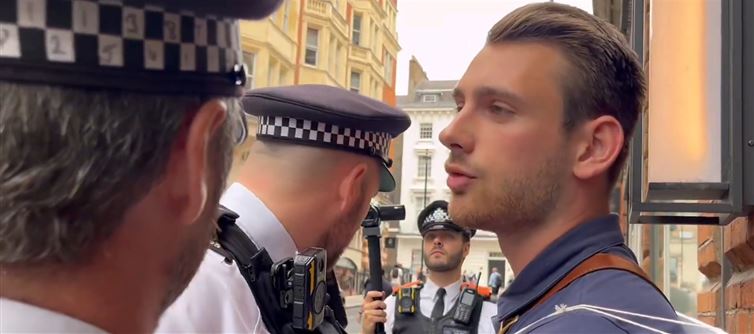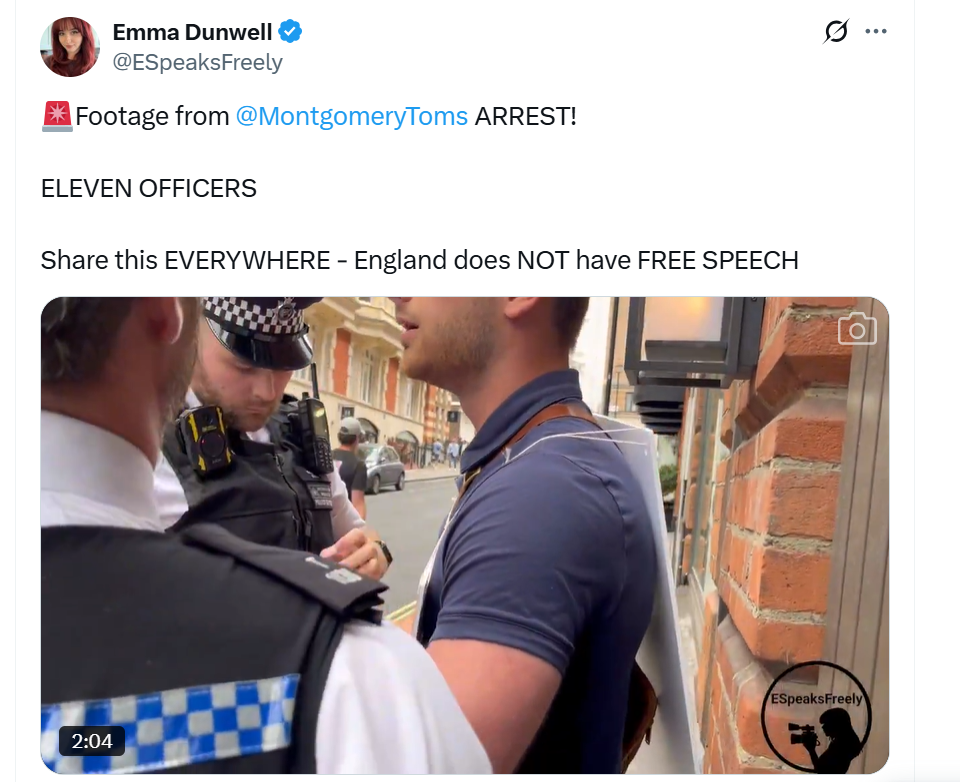
The arrest of Montgomery Toms is part of a broader trend of crackdowns on protesters in the UK, particularly those expressing views on controversial topics. The video’s context is linked to recent events where the UK government has faced criticism for its handling of demonstrations, especially those related to the Israeli-Palestinian conflict. Toms’ arrest is alleged to be for holding a placard that some found offensive, raising questions about the limits of free speech under current laws.
 The incident occurs against the backdrop of the UK’s proscription of palestine Action as a terrorist organization on July 5, 2025, which has led to the arrest of at least 29 people, including an 83-year-old retired priest, for allegedly supporting the group. This broader crackdown has fueled perceptions of a "two-tier" policing system, where certain protests are treated more harshly than others, a claim that has been propagated by figures like Tommy Robinson and Nigel Farage.
The incident occurs against the backdrop of the UK’s proscription of palestine Action as a terrorist organization on July 5, 2025, which has led to the arrest of at least 29 people, including an 83-year-old retired priest, for allegedly supporting the group. This broader crackdown has fueled perceptions of a "two-tier" policing system, where certain protests are treated more harshly than others, a claim that has been propagated by figures like Tommy Robinson and Nigel Farage.The arrest of Montgomery Toms raises significant legal questions about the UK’s approach to free speech and public order. Under english law, freedom of expression is protected by the Human Rights Act 1998, but this right can be restricted if it incites violence, hatred, or disrupts public order. The use of eleven officers to arrest one individual suggests a disproportionate response, prompting scrutiny of whether the action was necessary and proportionate.
This event is part of a larger narrative about the state of democracy and civil liberties in the UK. It reflects ongoing tensions between the government’s efforts to maintain security and the public’s demand for the right to protest and express dissenting views. The arrest of Toms, combined with other recent crackdowns, has led to accusations of a slide towards authoritarianism, with some comparing the UK’s actions to those of less democratic regimes.
The arrest of Montgomery Toms, as captured in Emma Dunwell’s video, is a poignant example of the challenges facing free speech in England. The involvement of eleven police officers to detain one activist for allegedly holding an offensive placard has sparked outrage and debate, reflecting broader concerns about the state of civil liberties in the UK.




 click and follow Indiaherald WhatsApp channel
click and follow Indiaherald WhatsApp channel